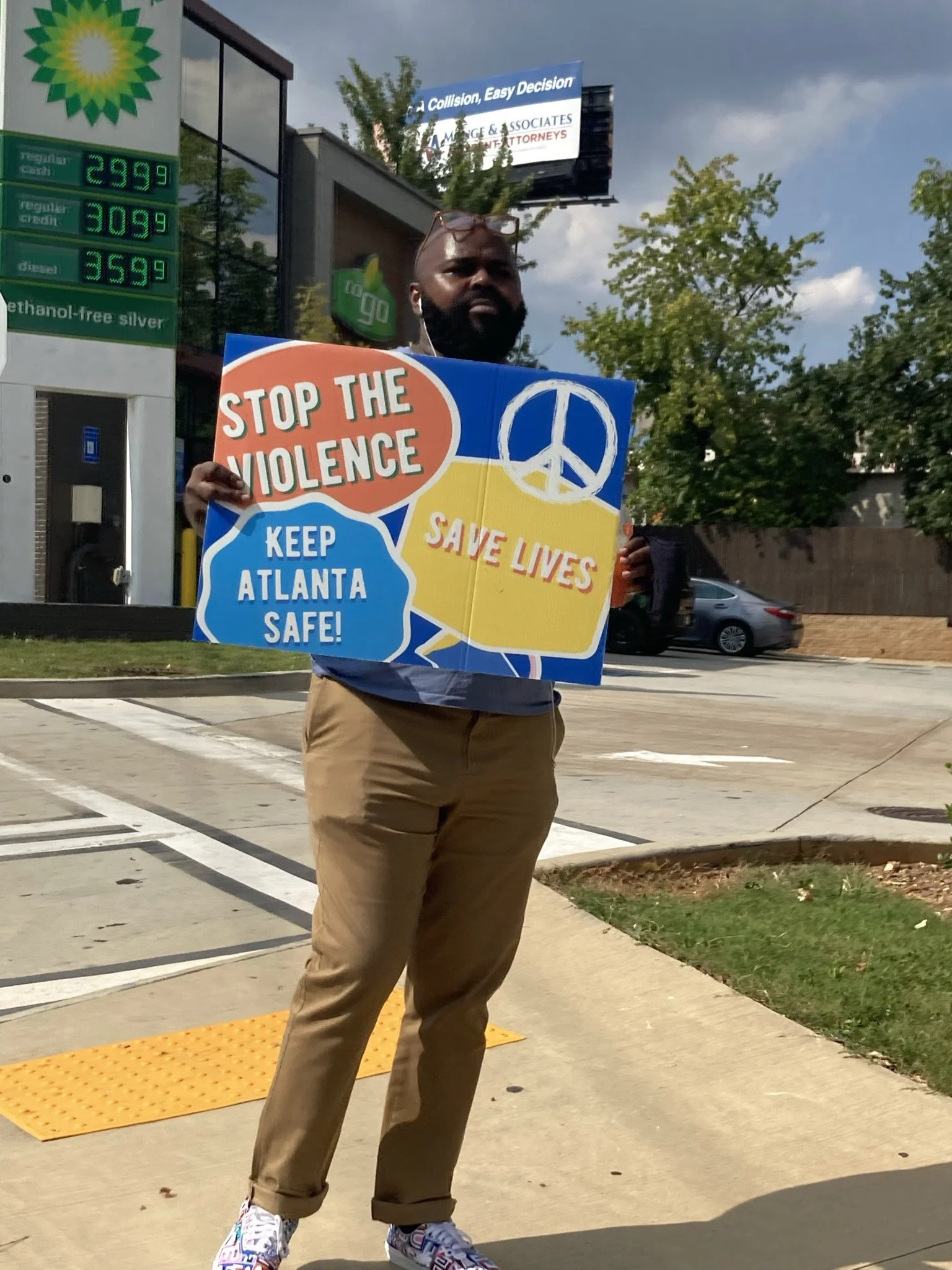Honoring Dr. Alfred Garner II: A New Doctorate, A Lifetime of Doing the Work
On behalf of Johnson Mapenzi Consulting Group and communities across the nation that his leadership has transformed, we are proud to celebrate our very own, VP of Therapeutic and People Services, Dr. Alfred Garner II, who has officially earned his Doctor of Social Work (DSW) from the University of Kentucky.
His capstone, “Beyond the Bullet: Supporting Families of Those Who Pull the Trigger,” is not just academic; it is courageous, timely, and rooted in a truth many fear to name. While mainstream narratives often focus solely on victims of violence, Dr. Garner challenges us to expand our lens: to see and support the families whose loved ones have caused harm. To recognize their grief. To offer them dignity. To break the silence around their pain.
As part of his capstone, Dr. Garner lifted up the importance of expanding access to VOCA (Victims of Crime Act) resources and rethinking how we define and support victims. For years, he has spoken boldly about the need for VOCA funding to be more inclusive, calling attention to the families of those who’ve caused harm, who are often excluded from traditional definitions of victimhood. His work pushes systems to confront their biases and challenges us to build support structures rooted not in punishment, but in healing, equity, and care.
This work is deeply aligned with the way Dr. Garner has always shown up in the world, not just with analysis, but with action. As a leader in Atlanta’s Community Violence Intervention (CVI) ecosystem, Dr. Garner has mentored national leaders, stood shoulder to shoulder with credible messengers on the front lines, and guided the next generation of healers and organizers. His focus has never just been on the work, but on the people. On healing that is not only spoken about, but lived. Not only designed, but practiced.
Dr. Alfred Garner II stands on a sidewalk holding a sign that reads “Stop the Violence,” “Keep Atlanta Safe,” and “Save Lives.” He’s reclaiming the very street where gun violence recently shook the community, not with protest, but with purpose. This moment isn’t performance; it’s prevention in motion. A reminder that public safety begins with visibility, presence, and love made visible.
In his everyday leadership and even in his academic defense, Dr. Garner modeled what it means to center Afrocentric frameworks, critical race theory, and healing justice in both form and function. He reminds us of a shared belief that people learn best through doing, that theory must be rooted in action, and that liberation is not a concept to memorize, but a practice to embody. Alfred doesn’t just teach this, he is this.
Whether holding space for a grieving mother, standing at a street corner holding a peace sign, or guiding a youth worker toward their own healing, Dr. Garner exemplifies a kind of leadership that cannot be taught in books alone. His doctorate now bears witness to what many of us have long known: his wisdom is earned, his impact is generational, and his legacy is still unfolding.
We salute you, Dr. Garner. You are what it looks like to lead with heart, to serve with courage, and to build systems that remember our humanity.
Congratulations. You did more than earn a title; you honored a calling.


